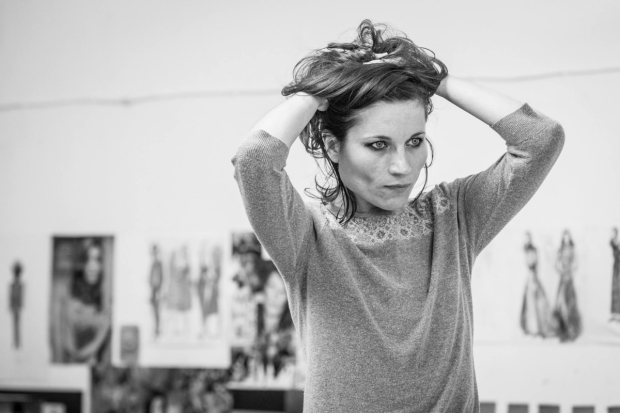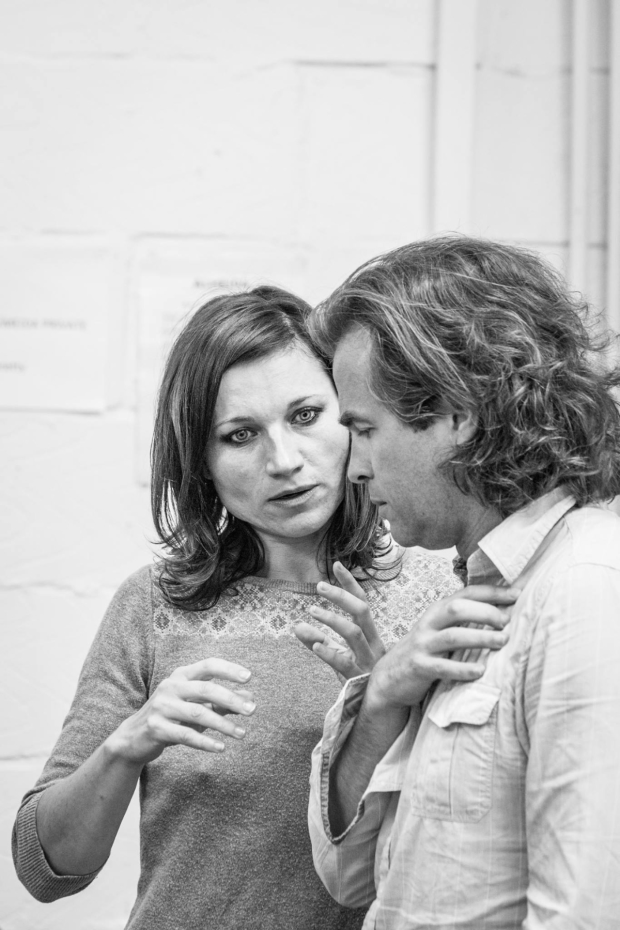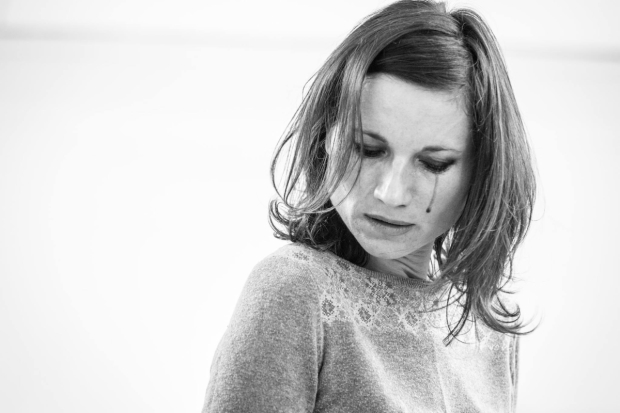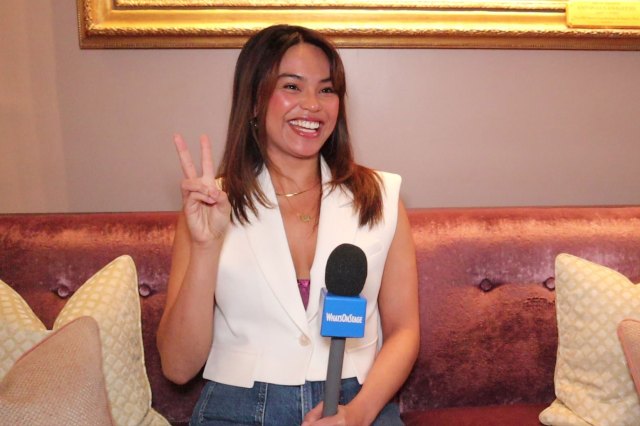Kate Fleetwood: ‘If Walter White was a woman, would we have found it as exciting?’
The Tony and Olivier Award-nominated actress talks about growing up in Stratford, the pressures of parenthood and the upcoming ‘truthfully gruelling’ version of ”Medea”

© Marc Brenner
"I started going to the theatre when I was five," she tells me, "when we moved to Stratford, my mum was unpacking cases and my dad took my sister and I to see the ducks. We ended up going into the theatre and paying five quid to stand at the back of this really famous production of The Taming of the Shrew. In that moment, for both my sister and I, a light bulb went off like ‘Oh yes, this is good’."
She talks about family a lot in our conversation, to be expected when dealing with a play that reflects on family values as much as Medea, which opens at the Almeida later this week.
Rachel Cusk's modern retelling of Euripides' Greek tragedy is the fourth time Fleetwood has worked with husband Rupert Goold, artistic director of the Almeida. I ask what it's like to be directed by him again.

© Marc Brenner
"It’s seven years since we’ve worked together and a lot’s happened in that time. We’ve had another baby and he’s become super successful, that’s caused it’s own stresses as it does with any couple."
She jokes that they have nightly script meetings until midnight, but ensures that it's not a hardship:
"That’s how we met, it’s what we have in common. People say ‘Oh Medea is very difficult material to be dealing with with your husband’ and it’s like – 'well Macbeth wasn’t any easier'."
Goold's production concludes the Almeida Greek season at the Islington venue and follows productions of Bakkhai starring Ben Whishaw and Oresteia, which has since transferred to the West End.
According to Fleetwood, Cusk's version is "gruellingly truthful". I ask whether it is hard for a mother to relate to a character who would murder her own children.
"I think one of the things Rachel is demanding in her telling is that it’s as much about motherhood as it is about betrayal. Concentrating on the inequality between the sexes of parenting and what the cultural narrative is of being a woman. How when you have a baby you become immediately conflicted between who you were before you had a baby and who you are today. And that’s nothing to do with maternal instincts that’s to do with cultural norms being projected on you.
"I can certainly relate to that, I think every woman can. It’s a hard thing to admit that it’s hard becoming a mum, literally overnight. Pregnancy is one thing, but parenting is another."
This emotional connection has evidently made the rehearsal period pretty intense for Fleetwood.
"It’s hard in rehearsals to get that contact with something emotionally whilst also trying to contain an intellectual dialogue as well; it’s easy to bellow and scream your way through these things, you have to make sure you’re clear and the argument is being addressed."
'No one knew I could sing before London Road'
Medea seems a far cry from her recent turn as Tracy Lord in High Society at the Old Vic.
"People say you couldn’t get more different than Tracy Lord and Medea, but Tracy has her own darknesses to contend with too," Fleetwood contends.
"I primarily went in [to High Society] thinking I’d just love to sing, little did I know the character is incredibly complex and interesting – I found it a really rich experience psychologically to play that character, the love and loss and loneliness."
And considering she built the foundations of her career with the RSC and Shakespeare's Globe, and received a Tony nomination for her performance in Chichester Festival Theatre's Macbeth (which transferred to the West End and Broadway), how was it that she came to be cast in London Road, the critically acclaimed National Theatre musical
that documents the events surround a series of prostitute murders?

© Marc Brenner
"No one knew I could sing before London Road, but I was always a singer as a child – my sister is a professional singer and musician and I was always doing musicals as a kid, but I didn’t ever concentrate on singing professionally, partly because I didn’t want it scrutinised, I enjoyed it too much for it to become something that would be criticised.
"But Adam Cork [composer of London Road] has always known I could sing because often if you are playing classical roles then you have to sing. Desdemona has a song and a lot of the shows I did would always call on my musicianship in some form.
"[After London Road] the word was out that I could sing and I started getting auditions for musicals. I was a bit frightened about that, I was anxious that I was just winging it, so I started to have some singing lessons. Then I met Maria Friedman at the first night of Made In Dagenham, we were just sitting and chatting – I didn’t know she was casting Tracy Lord, but she tells me a little light bulb went off and she thought 'maybe Tracy Lord is someone like Kate'."
'If Walter White was a woman, would we have found it as exciting?'
The conversation moves onto the subject of women in theatre. The rarity of her situation, having enjoyed back to back lead roles in large productions, is not lost on her but she jokes "ask me again in five years".
Referring to an article in The Times by Caitlin Moran, she adds: "For some reason most of the lead characters in musicals are women, you name them – Calamity Jane, Funny Girl, Sweet Charity, High Society, Wicked. For some reason, in our culture, we allow women to be strong and ballsy and take the key role as long as they are singing. I don’t know what that says but it’s an interesting observation that hadn’t occurred to me.
"If Walter White was a woman, would we have found it as exciting? Who knows? But for some reason we don’t allow women to be as interesting."
It's not all doom and gloom as she heralds a "completely new generation of young writers and directors who are feminists without having to even say they're feminists." But she warns we should be careful that art is "a meritocracy and not constantly a democracy. Otherwise then we’re censoring stories being told, we’re dictating the stories that need to be told in order to tick a box."
But there is one positive about the paucity of roles for women, she adds ironically: "When you get a dressing room you get more room."
When I ask what's next for her she quite rightly says that she's going to have a rest.
"A few days in a medical rehabilitation centre I think. The set for Medea is incredible, but it’s on a very slanting, backward moving rake, so my hip and my back is very sore, I’ve already had quite a bit of physio.
"When I get asked what I want to do next, I always believe that now is good."
Carpe Diem? I suggest, recalling the only Latin I know. "Yes, Carpe Diem" she replies.
Medea runs at the Almeida until 14 November 2015.













